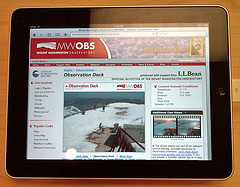
Ron Paul supporters in Tampa earlier this week.
This commentary also appears at the Huffington Post.
The media — all 15,000-plus reporters, photographers, editors, producers and assorted hangers-on who’ve descended on this unlovely, brutally humid old city — are having a nervous breakdown. And you’re invited to watch.
With the Republican National Convention making no news, and with the Democratic convention destined to be similarly vacuous, it seems the only story media people are talking about is the fact that there’s no story.
I wrote those words 12 years ago in Philadelphia, where I was covering the nomination of George W. Bush for the Boston Phoenix. If anything, the ennui that has come to permeate our national political conventions has grown even more pronounced since then. Nothing newsworthy will take place inside the Tampa Bay Times Forum this week or at Bank of America Forum in Charlotte, N.C., the following week.
But, once again, some 15,000 members of the media have showed up anyway, and most of them will be covering the same non-story. As the noted media observer Jeff Jarvis wrote on his blog, Buzz Machine, the financially strapped news business is spending some $60 million to attend two conventions even while cutting far more important coverage elsewhere. Jarvis continued:
Note that even while newspapers and news organizations have shrunken drastically, we are sending the same number of journalists to the conventions that we sent in 2008 and 2004. Why? Editorial ego: It’s fun to be there, in the pack. It’s fun for a paper or station to say, “We have our man/woman in Tampa/Charlotte.” Well goody for you. It’s a waste.
Yet it doesn’t have to be that way. Yes, way too many journalists are attending the conventions, and many if not most of the folks carrying press credentials this week should have stayed home. But I never found any shortage of news at the four national conventions I covered from 1996 to 2004. The secret — and it’s really no secret at all — is to get out of the hall and look for stories. I was a reporter for the Phoenix, an alternative weekly, during those years, so leaving the media pack behind wasn’t just tolerated; it was required.
In 1996, when I covered the Republican convention in San Diego, I was one of a surprisingly small group of reporters who took a bus to a rally at which Pat Buchanan made his last stand. No doubt other journalists were afraid of missing out on even a moment of Dole-Kemp mania.
In 2000, covering the Republicans in Philadelphia and the Democrats in Los Angeles, I followed protesters around the city streets and reported on two “Shadow Conventions” — left-leaning events organized by Arianna Huffington, who had only recently moved from the conservative to the progressive side of the political spectrum.
At the Democratic convention in 2004, on my home turf in Boston, I skipped Barack Obama’s keynote address because I was writing on deadline. So what? Yes, I missed a bit of history, but it’s not as though his speech wasn’t covered. What mattered was that my fellow Phoenix reporters and I went looking for news outside the building — and found plenty of it, from a meeting of gay and lesbian Democrats to a church service/rally in honor of the late senator Paul Wellstone, from demonstrations in the streets to panel discussions on the sad state of political journalism.
I have little doubt that Jeff Jarvis will be proven right, although there will be a few honorable exceptions. But it doesn’t have to be that way. All the media have to do is get off their collective rear ends and go looking for news. (And let me give a plug to David Bernstein and Chris Faraone, who are heading up the Phoenix’s Tampa coverage.)
I’ll close here as I did in Philadelphia in 2000:
Sure, the media will cover the horse race — who’s up, who’s down, who’s gaining, who’s losing — as well as the accusations and responses, the biographical retrospectives, and the gotchas. That’s all valuable stuff.
But they’ll almost certainly miss the biggest political story of all: the profound disconnect between average citizens and their elected officials…. A sign at the Shadow Convention put it best: “We Can Only Vote Every Four Years; Money Votes Every Day.”
It’s a story the media could have tried to cover during convention week, but — with rare exceptions — they didn’t even try. Instead, the story coming out of Philadelphia was that there was no story. There was. If journalists would start focusing more on the public’s alienation and less on their own, maybe they could start to tell it.
Photo (cc) by Gage Skidmore and republished here under a Creative Commons license. Some rights reserved.


 I can’t remember the last time the media world was as excited about
I can’t remember the last time the media world was as excited about